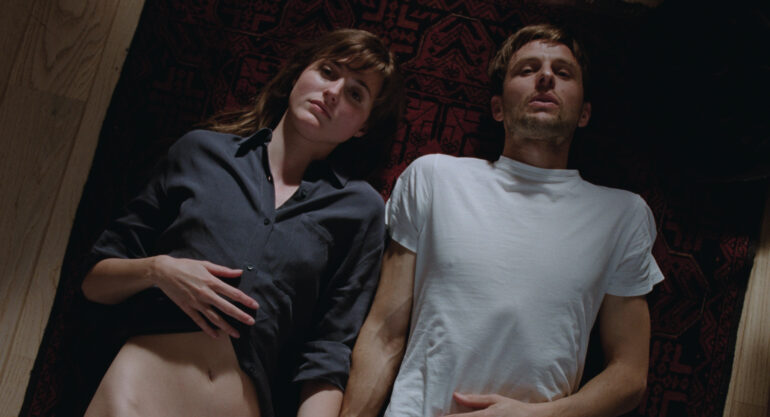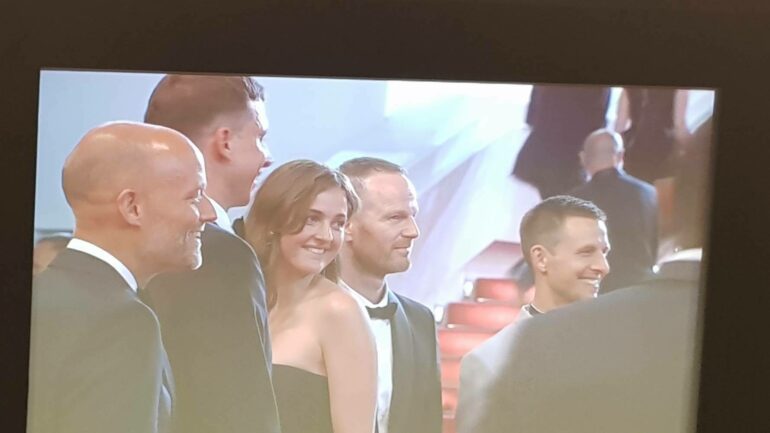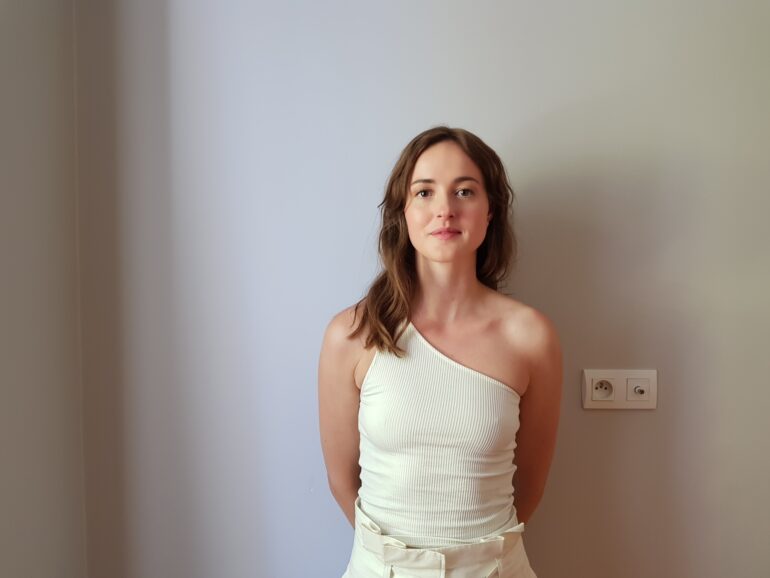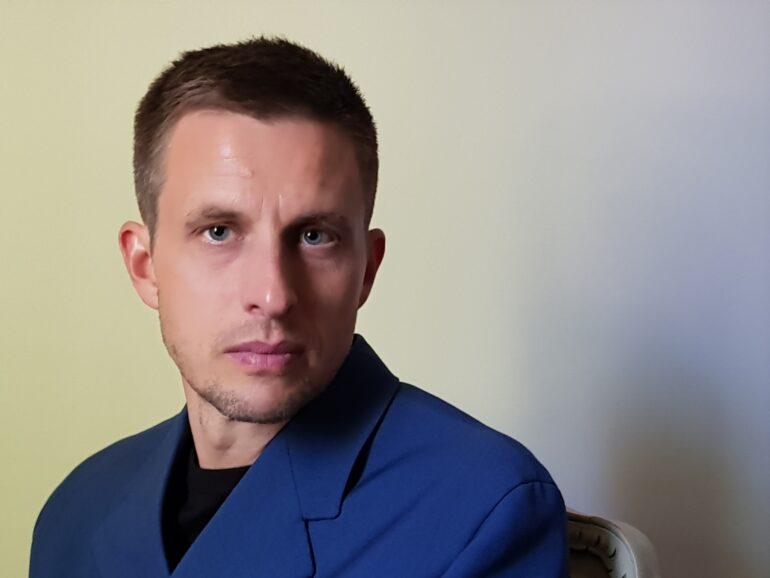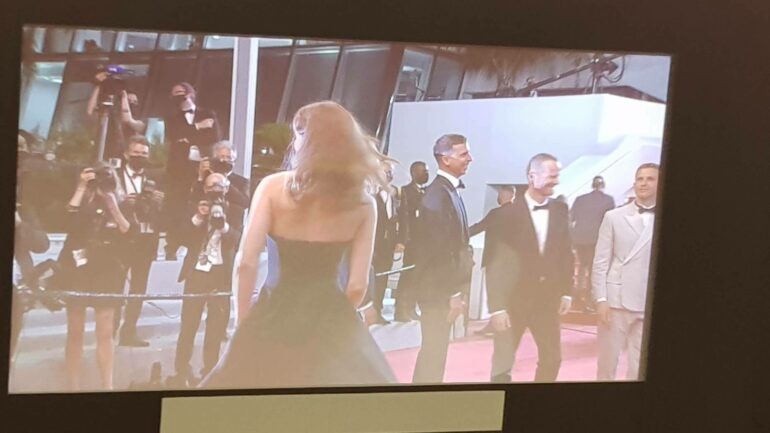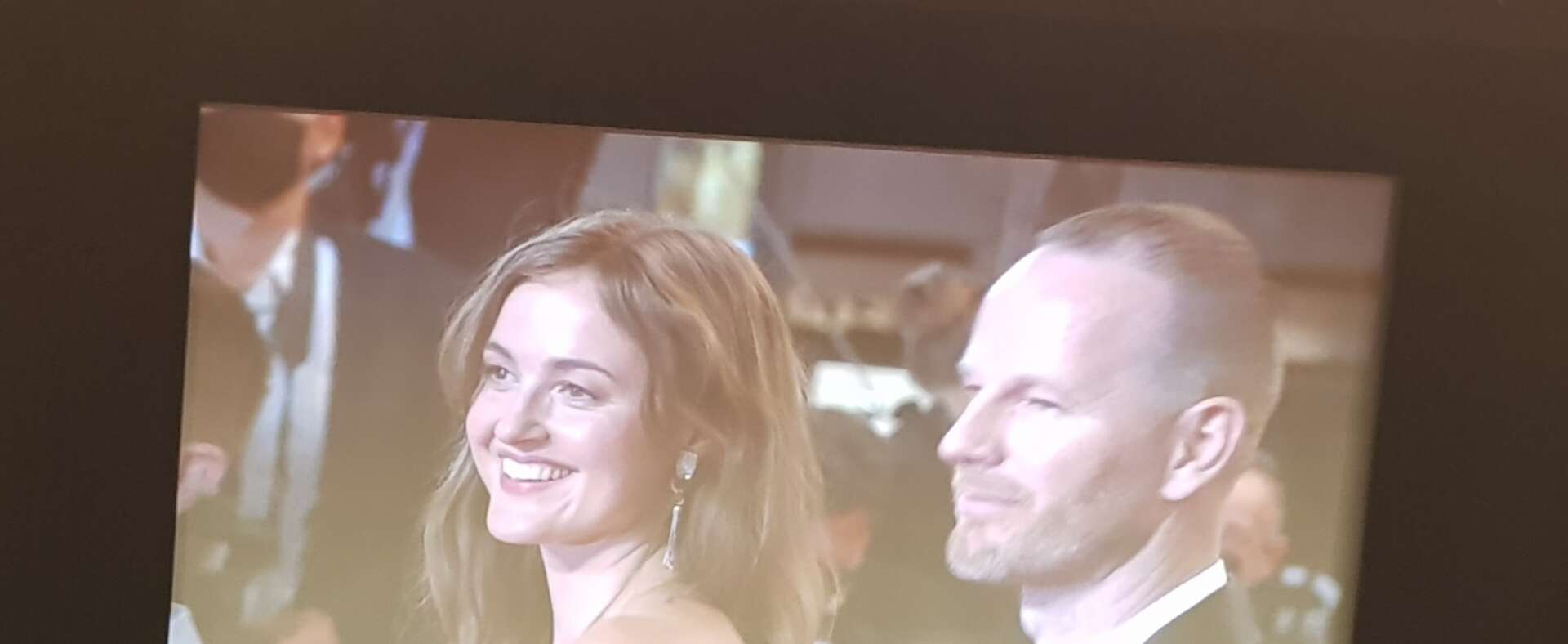
Cannes 2021: The Norwegian film running for a Palme d’or, received rave reviews in many major press outlets and an 8-minute standing ovation in Cannes July 8.
The highly anticipated third instalment in Joachim Trier’s ‘Oslo trilogy’ after Reprise and Oslo-August 31st and second Palme d’or contender after Louder than Bombs, bowed in Cannes with a splash.
After a thunderous applause from the 2,000 Grand Théâtre Lumière audience in Cannes on Thursday July 8, the film was very well received from reviewers in trade magazines Variety, Indiewire, The Hollywood Reporter among others, while Peter Bradshaw from The Guardian coined it as ‘an instant classic’ and saw in Renate Reinsve the next major Scandinavian star after Alicia Vikander, giving the film 5 stars.
Co-written by Trier’s usual writing partner Eskil Vogt, The Worst Person in the World centres on Julie whose life is an existential mess. Professionally, she jumps from medical studies to working in a bookstore and as a photographer. Her love life is equally messy. Although she seems to have a happy relationship with Aksel, a successful graphic novelist, who wants to settle down, one night she falls for the charming Eivind and before long, she has broken up with Aksel and thrown herself into yet another new relationship, hoping for a new perspective on her life. But she soon realises that some life choices are already behind her.
In the title roles as Julie are rising talent Renate Reinsve (Welcome to Norway, Oslo August 31st), Trier’s usual collaborator Anders Danielsen Lie (also present in Cannes in Mia Hansen-Løve’s Bergman’s Island) and Herbert Nordrum (Beforeigners, King’s Choice).
The film was produced by Thomas Robsahm for Oslo Pictures, in co-production with France’s MK2, Denmark’s Snowglobe and Sweden’s B-Reel Films, with co-financing from NRK, SF Studios, Talent Norge, Amarcord, Storyline, DR, Film i Väst, SVT, support from the Norwegian Film Institute, Danish Film Institute, Swedish Film Institute, Eurimages and Nordisk Film & TV Fond. MK2 handles world sales.
The Norwegian premiere is set for October 15.
We sat yesterday with Joachim Trier, Renate Reinsve and Anders Danielsen Lie at Memento Distribution’s Cannes office.
Questions to Joachim Trier
Tell me about your intention with the film…it seems like you wanted both to ‘go back to your roots’ - the new wave style of Reprise and Oslo August 31st, while innovating in tone and genre, with a lighter playful comedy drama about love….
Joachim Trier: Yes it was exactly that. After Thelma, Eskil and I sat down and said: what do we want to do and say, what are we now? I needed a moment to think, to feel enthusiastic about shooting. It was a therapeutic experience in a way. We felt we hadn’t tackled a love story and started watching a lot of George Cukor movies, we read books etc. And making a film about love and loss felt obvious.
At a certain point, we discussed identity, love and time-three central themes. These inspired us and the power of the stories and characters started to emerge.
Another important ingredient was: who the hell do I want to film? What actress am I interested in? I had been dreaming to find a new role for Renate. She had just one line of dialogue in Oslo August 31st, but since then, in the last decade, she’s had a fabulous theatre career. I knew how good she was. So I wrote the part for her.
That’s not really what you usually do…
JT: No although I did this with Anders Lie in Oslo August 31st. Those two films are very different in tone, but they are about individuals who are troubled by the expectations put upon themselves, they feel kind of lost in themselves, having wasted opportunities.
But with this film, I’m older and I wanted to make a film about hope, surviving. I needed that, like a big hug! It’s a kind of sad love story, but I wanted to make it with levity, humour and warmth.
There are many aspects of love in the film and sometimes you wonder if Julie falls in love with love and if she’s really capable of loving another person…
JT: We describe different relationships throughout the film; Anders Lie’s character Aksel is someone she admires and she gets caught in the need to be defined by someone more mature, as she doesn’t quite know who she is.
But being defined by someone else can after a while feel stifling, like a prison. That’s the dynamic that unfortunately can happen in love. Then she wants freedom and meets Eivind. But there are other challenges in that relationship as she has to confront herself. Love as a factor is driving the story equally into Julie’s central problem. That to me is an interesting drama.
In his book ‘The Art of Love’, Erich Fromm says that ‘self-love’ is a key step towards loving another person. That’s the transformation that Julie has to go through….
JT: Erich Fromm is a great thinker and I totally agree. This is also why the film is called The Worst Person in the World. When a love story fails, it’s often not about someone else, it’s about yourself. The feeling of personal failure can be real. Why can’t I make relationships work the way I want? It’s one of the biggest dramas that people I know go through.
Although Julie is unsure about what she wants in life, she has a healthy attitude towards sex and is self-assured about her power of seduction…
JT: I’ve had a lot of comments from the press saying ‘hey, it’s great that you make a film about a modern woman’, but maybe it’s great for a man to be allowed to talk through a female character, because we’re living in exciting times, with people reflecting on the definition of what it is to be a woman. I’m perhaps a bit of an old school feminist, but I believe the sense of individual liberation through sexuality is an important right for any human being, including women. I come from quite a traditional protestant background where there is a sense of reasoning and virtue that can be frustrating.
There are two memorable stylistic set-pieces, one freeze frame scene where Julie runs in the street of Oslo to meet Eivind, and another scene where she trips on mushrooms. Can you tell us how these came to your mind?
JT: You know my cinema. It’s a continuous curiousness about timing formal concept scenes and bringing into character rather than telling an action scene. It’s an externalisation of a character. In Louder than Bombs for instance, we followed the montage into the head of the young brother and his notions of the past, his mother, memories. Here, the frozen sequence, or time stop, is the dream we all have about stopping time to have a break from it all. It’s experiencing love in a different way. Cinema shows things. I wouldn’t be able to do this in a book the same way. I’m very happy we managed to do this.
What are your favourite films about love?
JT: A great film about how love makes you vulnerable in a healthy way is The Philadelphia Story by George Cukor. Katharine Hepburn’s character has to learn humility to be vulnerable enough to love. That’s a very inspiring theme. Then being in France, I would say the films dealing with self-love and self-hatred-Le Rayon vert by Eric Rohmer is great. It’s a very sweet and human film. I love it!
Has Covid-19 impacted your film?
JT: It was delayed. Last summer we finally found a moment to finish the film. But the actual shoot went fine. The film is exactly the way we wanted, in 35mm, for the big screen experience. The dynamic to show the film to a large audience, hearing people’s reactions was magical. It’s so special to experience it in Cannes. I believe in rituals, the need to have a shared-experience, to get into emotions and experience things in a special way.
You had your usual film team around you besides Eskil Vogt-editor Olivier Bugge Coutté, production designer Roger Rosenberg, producer Thomas Robsahm among others…
JT: Yes most of them. I had a new DoP this time-Kasper Tuxen who has worked with Gus van Sant [The Sea of Trees], Mike Mills (Beginners], people I admire. He has a warm, smart grip. He is great with actors. Don’t forget, the cinematographer and the editor are much more than technical experts. The editor creates performance of the best. If they don’t know how to look at actors, they can’t cut a film. The same goes with a DoP. They have to understand actors, to make them feel in the right mood for a scene in front of the camera. That’s what Kasper does.
What’s next for you? A fourth film in the ‘Oslo’ film series?
JT: Honestly I don’t know right now, but perhaps I should do this, just wait a few years. A lot of the auteur/filmmakers I admire and that I grew up with, sat down and took their time. Like novelists. It’s a privilege to be allowed to work that way, and it’s worked so far
Questions to Renate Reinsve
Joachim Trier who hired you for a smaller part in Oslo, August 31st, wrote the part of Julie for you. What was your reaction when he offered you this major role?
RR: Just to be asked was unreal. What happened is that after Oslo 31st August, we just clicked, and over the last decade, we’ve enjoyed discussing big questions-life, death….and love!
As you were involved quite early in the project, what was your input in the creation of your character? It must have been essential for Eskil and Joachim to get a female perspective on Julie…
RR: Joachim was adamant for me to read and contribute to the script. He wanted me to depict an accurate picture of a woman of this time, and I was surprised how accurate he actually was himself. But other elements were missing, so I filled the few gaps in the film. Julie has trouble defining herself, so she gets boyfriends who kind of fill an identity gap in her. She tries to be what they see in her, this is also why she has to break-up.
Julie has a very emotional life and is deeply insecure. It’s only when she experiences a big loss that she can settle and accept life for what it is and that things never go as excepted.
Do you believe in meeting people at the right time?
RR: Yes. And this is important for Joachim as well. You can meet a person that has an imprint on you - then you might meet 12 years later, you connect again, feel attracted, but you both have kids, and can’t do anything about it. Time is a big theme in the film.
It’s also quite a feminist film, as Julie takes control of her body, her physical needs, she talks and writes freely about sex….
RR: I love the way she is so sexual and sexually aggressive-quite masculine in that sense. She is an anti-conformist, she wants to move away from everything all the time, because she doesn’t feel she fits the prism that guys have of her. But that also makes her very lonely.
Julie goes through an emotional rollercoaster. How did you prepare for your performance and work with Joachim?
RR: We talked a lot about the scenes, analysed them. I tried different versions of Julie at home, working on her different physical appearance, traits of her personality. She was so close to me - I needed to have a very clear idea of what a scene was about-and would just let go. I had so much trust from Anders Lie and Herbert. Working with them was so inspiring and wonderful.
What’s next for you?
RR: I can’t really say right now.
Questions to Anders Danielsen Lie.
This is your third film with Joachim Trier. Could you just remind us how you first met and about the special bond between the two of you?
Anders Danielsen Lie: We met at the casting of Reprise and hit it off immediately. We were both raised in Oslo, and sometimes I’m amazed that we haven’t met before as we have so many common interests, although he’s a bit older than me. We talk a lot about our emotions, our lives, but we also have a strong analytical side. We love mixing those two ways of approaching filmmaking and acting. We’re never shy of analysing a scene, even when shooting.
Usually, when you work with a new director, you have to get to know that person before you start shooting. it’s just easier to then communicate on a film set. With Joachim, as we know each other well and have had many discussions about characters, psychology, it makes our collaboration on a film set much more effective.
How would you define Aksel in this third Oslo film instalment?
ADL: It’s a much lighter character compared to my previous characters in Reprise and Oslo, August 31st, who had mental illnesses. Aksel is quite healthy psychologically. He is a successful graphic novelist and has reached a point in his life where he has made major choices in life already. He’s ready to settle, have kids, move on to the next level in his life. But deep down, I believe he is still searching for some kind of identity. You can sense this in the last act of the film. He has the feeling that what he cherishes the most in life is behind him.
Not only do you share a double presence in competition in Cannes with The Worst Person in the World and Mia Hansen-Løve’s Bergman’s Island, but you also wear a double cap as an actor and as a doctor. Both are totally different jobs of course and as a doctor, you need to be fully in control whereas as an actor, you are in the hands of a director, a writer, part of a crew. Is it this contrast that keeps you going, and in what way does one profession enrich the other?
ADL: Sharing my life between the two activities is definitely the hardest part and difficult in terms of planning. These are of course, totally different professions. But definitely, being a doctor is a major source of inspiration for some of the characters I play. I’ve met many people in different tough situations and I feel I can use this in my acting, in terms of what the characters go through.
Then being a doctor, has perhaps helped me in my communication skills. as being a doctor is indeed about control, being analytical, whereas being an actor is about accepting chaos, exploring things, even if you have a great script and a sense of your character. You discover a lot of things along the way. It’s all about being open to impalpable things.
Do you work as a doctor during the pandemic?
ADL: Yes since December, after finishing shooting this movie, I’ve worked full-time as a doctor, on a vaccination programme in Oslo.
Do you believe in true love?
ADL: Absolutely, although making long term relationships work can be hard work.
